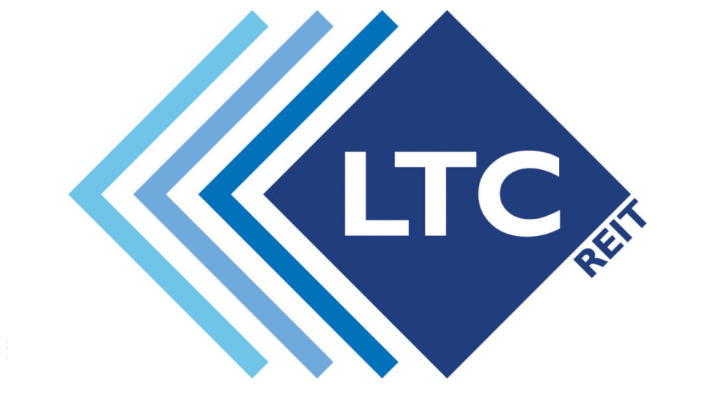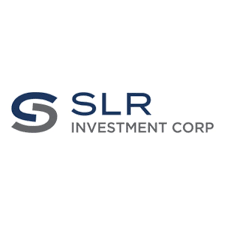Many investors are unaware that monthly dividend stocks exist, but these can be a great way to generate regular income. By investing in stocks that pay monthly dividends, you can create a steady stream of income, ideal for covering monthly expenses or reinvesting.
Let’s explore some of the best monthly dividend stocks available on the market today.
Best Monthly Dividend Stocks

STAG Industrial, Inc. (NYSE: STAG)
STAG Industrial, Inc., is a real estate investment trust (REIT) specializing in warehouses and light industrial properties. With a focus on distribution centers for large-scale national companies, STAG has established a robust portfolio that includes more than 550 buildings across 40 states.
The company benefits from the increasing shift toward online commerce, providing essential storage and distribution solutions for e-commerce businesses.
This strategic positioning puts STAG Industrial in a strong position for continued success. The company’s rental income, derived from its extensive portfolio, supports its ability to pay consistent monthly dividends.
As of April 2025, STAG pays a monthly dividend of $0.1242 per share, with the next payment scheduled for June 16, 2025.

AGNC Investment Corp. (NASDAQ: AGNC)
AGNC Investment Corp. is another REIT, but it specializes in agency mortgage-backed securities. These securities are backed by the federal government, providing a level of security in the event of defaults. AGNC’s portfolio includes over $61 billion in residential mortgage-backed securities.
The mortgage REIT market is relatively predictable, heavily influenced by federal monetary policies and interest rate trends. AGNC’s strategy involves buying and selling these securities to generate profit, which allows the company to offer substantial dividends.
Despite the challenges posed by fluctuating interest rates, AGNC remains a strong choice for those seeking regular income from the monthly dividend.
AGNC continues its monthly dividend of $0.12 per share, with the next payment scheduled for June 10, 2025.
Check out our article for more cheap dividend stocks to buy.
Safe Monthly Dividend Stocks

Realty Income Corporation (NYSE: O)
Realty Income Corporation, often referred to as “The Monthly Dividend Company,” is a real estate investment trust (REIT) known for its dependable monthly dividend payments. The company owns over 11,400 properties across the United States, Puerto Rico, the United Kingdom, and Spain.
Most of these properties are single-tenant retail locations, including convenience stores, pharmacies, and supermarkets. This diverse portfolio reduces financial risk by spreading it across over 1,100 clients in various industries.
Realty Income’s focus on high-traffic, essential service properties, such as pharmacies and convenience stores, could ensure a stable income stream even during economic downturns. Its long-term triple-net leases, where tenants cover taxes, insurance, and maintenance, further enhance stability.
Realty Income’s commitment to paying a monthly dividend for over 50 years and its consistent dividend increases make it a reliable choice for income investors seeking regular dividend payouts.
Realty Income maintains its reputation as “The Monthly Dividend Company” with a monthly dividend of $0.2685 per share, next payable on June 13, 2025.

ARMOUR Residential REIT, Inc. (NYSE: ARR)
ARMOUR Residential REIT, Inc., is another solid option for those seeking safe monthly dividend stocks. This equity REIT invests in mortgage-backed securities (MBS) guaranteed by government-sponsored entities such as Fannie Mae, Freddie Mac, and Ginnie Mae. ARMOUR does not own physical properties but focuses instead on managing these securities to generate profit.
The mortgage REIT market’s predictability, influenced by federal monetary policies and interest rate trends, provides ARMOUR with a strategic advantage. Despite challenges from fluctuating interest rates, ARMOUR’s ability to adapt its trading strategy and maintain high dividend yields makes it a potentially attractive option for income investors.
By focusing on federally backed MBS, ARMOUR could offer a level of security that traditional equity investments might not provide. ARMOUR continues paying a monthly dividend of $0.24 per share, with the next distribution on May 29, 2025.
Learn about some other safe dividend stocks on the market.
Monthly REIT Dividend Stocks

SL Green Realty Corp. (NYSE: SLG)
SL Green Realty Corp. is a prominent REIT specializing in office properties in Manhattan, making it the largest commercial landlord in New York City. The company owns and operates 64 buildings, totaling over 34.4 million square feet. SL Green’s focus on high-value, long-term commercial leases with blue-chip tenants could ensure a steady revenue stream and financial stability.
SL Green’s strategic acquisitions and robust business model position it well for sustained growth. The company’s recent acquisition of 450 Park Avenue, involving institutional investors from South Korea and Israel, demonstrates its ability to attract and manage significant equity investments.
With a strong presence in a key market like New York City, SL Green could continue providing regular dividends to traders looking for stable monthly revenue.
SL Green pays a monthly dividend of $0.2575 per share, with the next payout on June 16, 2025.

Agree Realty Corporation (NYSE: ADC)
Agree Realty Corporation is a well-regarded REIT with a portfolio of over 1,600 properties across 48 states. The company’s focus on single-tenant commercial properties, including retail and service locations, provides a stable income base. Agree Realty’s long-term leases, where tenants are responsible for taxes, maintenance, and insurance, could help maintain consistent cash flows.
Agree Realty’s decision to switch from quarterly to monthly dividends reflects its commitment to providing regular income to shareholders. The company’s diverse tenant base and strategic property locations further enhance its potential for steady dividend payouts.
With a solid financial foundation and a focus on essential service properties, Agree Realty could be a dependable choice if you are seeking monthly dividend income.
Agree Realty has increased its monthly dividend to $0.256 per share as of April 2025.
Best Monthly Dividend Stocks With High Yield

LTC Properties, Inc. (NYSE: LTC)
LTC Properties, Inc., is a REIT specializing in senior housing and healthcare properties. The company manages over 200 investments across 30 states, focusing on skilled nursing facilities and senior living communities. LTC acts as a landlord, leasing these facilities to experienced operators under long-term agreements, which ensures a steady revenue stream.
The aging baby boomer generation is expected to increase the demand for senior housing, positioning LTC Properties for continued growth. The company’s diverse portfolio and strategic partnerships with leading operators in the healthcare sector provide a stable foundation for ongoing dividends.
LTC’s dividend yield is particularly attractive to people seeking regular portfolio income. The company’s focus on essential healthcare services and long-term leases offers a reliable source of revenue, making it a strong candidate for those seeking high-yielding monthly dividends.
LTC continues its monthly dividend program. As of May 2025, dividend payments remain consistent. Investors should refer to Nasdaq’s dividend history for updates.

Dynex Capital, Inc. (NYSE: DX)
Dynex Capital, Inc., is a mortgage REIT that invests in mortgage bonds and securities backed by residential and commercial properties. By leveraging these investments, Dynex aims to generate high dividends for its shareholders.
The company’s focus on both residential and commercial mortgage-backed securities allows it to capitalize on various segments of the real estate market.
Dynex Capital’s strategy includes careful management of its investment portfolio to optimize returns while mitigating risk. Despite market fluctuations, Dynex has maintained a robust dividend yield, appealing to income-focused investors.
The company’s ability to adapt to changing interest rate environments and its diversified investment approach contribute to its potential for providing consistent monthly dividends. Traders should consider Dynex Capital for its solid yield and the stability offered by its diversified portfolio of mortgage-backed securities.
Best Growth Monthly Dividend Stocks

Gladstone Commercial Corporation (NASDAQ: GOOD)
Gladstone Commercial Corporation is a real estate investment trust focusing on acquiring, owning, and operating net-leased industrial and office properties across the United States. The company’s portfolio includes a balanced mix of single-tenant and anchored multi-tenant properties, which helps to diversify risk and ensure steady payments.
Gladstone’s strategy involves investing in properties with long-term leases to creditworthy tenants, providing a stable cash flow. The REIT also engages in build-to-suit projects, catering to specific tenant requirements, which can lead to higher lease rates and increased property values. This focus on long-term leases and customized property solutions positions Gladstone for sustainable growth.
With a solid track record of paying a monthly dividend and a commitment to expanding its property portfolio, Gladstone Commercial Corporation could offer attractive growth potential for income-focused investors.
Gladstone pays a monthly dividend of $0.10 per share, with the next payment due May 30, 2025.

SLR Investment Corp. (NASDAQ: SLRC)
SLR Investment Corp. is a business development company (BDC) that focuses on lending to U.S. middle-market companies. Its diversified portfolio includes first-lien secured loans, which helps reduce risk and support steady income.
As of 2025, SLR pays a consistent monthly dividend of $0.1365 per share. The company has maintained this payout level despite fluctuating interest rate environments, thanks to its careful underwriting and conservative balance sheet.
SLR’s focus on secured lending, combined with its monthly dividend schedule, makes it an attractive choice for investors looking for reliable income with potential for modest capital appreciation.
Should You Buy a Monthly Dividend Stock?
Monthly dividend stocks can be beneficial to any investment portfolio, providing a consistent income stream that can help investors meet their financial goals.
Most publicly traded companies offer quarterly dividends, making a monthly dividend stock relatively rare. However, they offer unique advantages, especially for those seeking regular income.
Benefits of Monthly Dividend Stocks
• Consistent Cash Flow – Monthly dividend stocks provide a steady income stream, which can be particularly beneficial for retirees or individuals relying on their investments for monthly expenses. This regular income can help cover living costs without the need to sell assets.
• Compounding Returns – Reinvesting dividends can accelerate the compounding process, leading to greater long-term wealth accumulation. By participating in a dividend reinvestment plan (DRIP), you can purchase additional shares automatically, increasing their future dividend payouts.
• Smoother Income Stream – Compared to quarterly dividends, a monthly dividend can help smooth out the income stream, reducing the impact of market volatility. This can make it easier to manage budgets and plan for future expenses.
• Increased Flexibility – A monthly dividend stock provides more frequent opportunities to reinvest dividends or use the income as needed. This flexibility can be especially useful in managing liquid money flow and taking advantage of investment opportunities.
Explore more benefits of investing in dividend stocks.
Considerations When Buying Monthly Dividend Stocks
• Payout Ratios – It’s essential to consider the payout ratios of dividend stocks. A high payout ratio might indicate that a company is distributing most of its earnings as dividends, which could be unsustainable in the long term. Look for companies with reasonable payout ratios to ensure the dividend is sustainable.
• Dividend Cuts – Be cautious of companies that have a history of dividend cuts, as this can signal financial instability. Research the company’s financial health, earnings consistency, and cash flow to ensure the dividend is likely to continue.
• Sector Exposure – Monthly dividend stocks are often concentrated in specific sectors, such as REITs and business development companies (BDCs). Diversify your portfolio across various sectors to mitigate risk and enhance potential returns.
Where to Buy Monthly Dividend Stocks
Finding the right platform to buy a monthly dividend stock is crucial for successful investing. Most high-quality monthly dividend stocks are listed on major exchanges like the NYSE and NASDAQ. Here are some popular trading platforms:
Robinhood
Robinhood is a user-friendly trading platform that offers access to a wide range of stocks listed on major exchanges. It provides commission-free trading, making it an attractive option for both new and experienced investors. The platform’s intuitive interface makes it easy to find and invest in monthly dividend stocks.
Webull
Webull is another excellent platform for trading monthly dividend stocks. It offers more advanced tools and features compared to Robinhood, making it suitable for investors who want to perform in-depth research and analysis. Webull also provides commission-free trading and access to real-time market data, helping traders make informed decisions.
Traditional Brokerages
Traditional brokerage firms like Fidelity, Charles Schwab, and TD Ameritrade offer robust platforms with comprehensive research tools, educational resources, and customer support. These brokerages provide access to a wide range of stocks, including monthly dividend stocks, and often offer dividend reinvestment plans (DRIPs).
Best Monthly Dividend Stocks: Final Thoughts
Investing in monthly dividend stocks can be a strategic way to generate consistent income and build long-term wealth. These stocks are particularly appealing to risk-averse investors who prioritize stability and regular income.
By carefully selecting high-quality dividend players with sustainable payout ratios and strong financial health, investors can benefit from reliable dividends and potential capital appreciation.
When adding monthly dividend stocks to your portfolio, it’s essential to conduct thorough research and consider diversification to manage risk effectively. Using reliable trading platforms like Robinhood, Webull, or traditional brokerages can help you access many monthly dividend stocks and optimize your investment strategy.
Best Monthly Dividend Stocks FAQ
Here are answers to some of the most popular questions on monthly dividend stocks.
Are Monthly Dividend Stocks Worth It?
There is no definitive answer to this question as it depends on the individual investor’s circumstances and goals. Monthly dividend stocks tend to be a great way to generate regular income, especially for retirees who rely on their portfolios for monthly income.
They offer consistent flow of revenue and the potential for dividend reinvestment, but it’s essential to evaluate each stock’s financial health and dividend sustainability.
What Stocks Pay a Monthly Dividend?
REITs like AGNC Investment Corp. and ARMOR Residential REIT are great options for monthly dividend payouts. These companies often pay out more in dividends annually than they earn in profits, relying on the continual flow of rent payments from their tenants to sustain dividend payments.
Other sectors with monthly dividend payers include business development companies (BDCs) and certain closed-end funds (CEFs).
How Do Monthly Dividend Stocks Work?
Monthly dividend stocks distribute dividends on a monthly basis instead of the more common quarterly schedule.
For example, if you purchase shares of a stock that pays out $0.50 per share each month, you would receive $6.00 (per share) in dividends over a year. This provides a more frequent income stream compared to quarterly dividends, which would pay out $2.00 per share quarterly for the same annual total.
Can You Live Off Dividends?
While it is challenging to live solely off dividends, it is possible to generate steady income with careful planning. Investing in high-yield dividend stocks can provide a significant portion of your income.
However, it typically requires a substantial investment portfolio and a mix of dividend-paying stocks to ensure sufficient and reliable income to cover living expenses.
Does Tesla Pay Dividends?
No, Tesla does not currently pay dividends. The company prefers to reinvest its profits back into the business to fuel growth and innovation. Many growth-oriented companies, like Tesla, choose to reinvest earnings to expand operations, develop new products, and enter new markets rather than distribute dividends to shareholders.


 Tags:
Tags:










